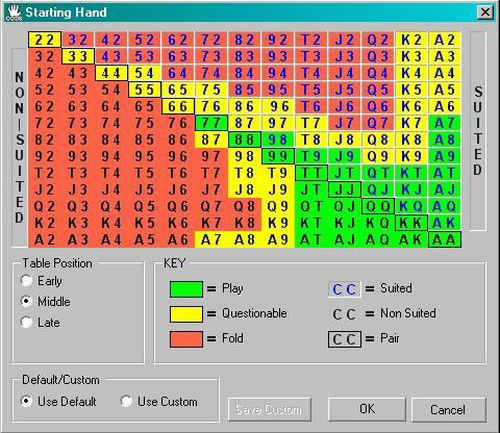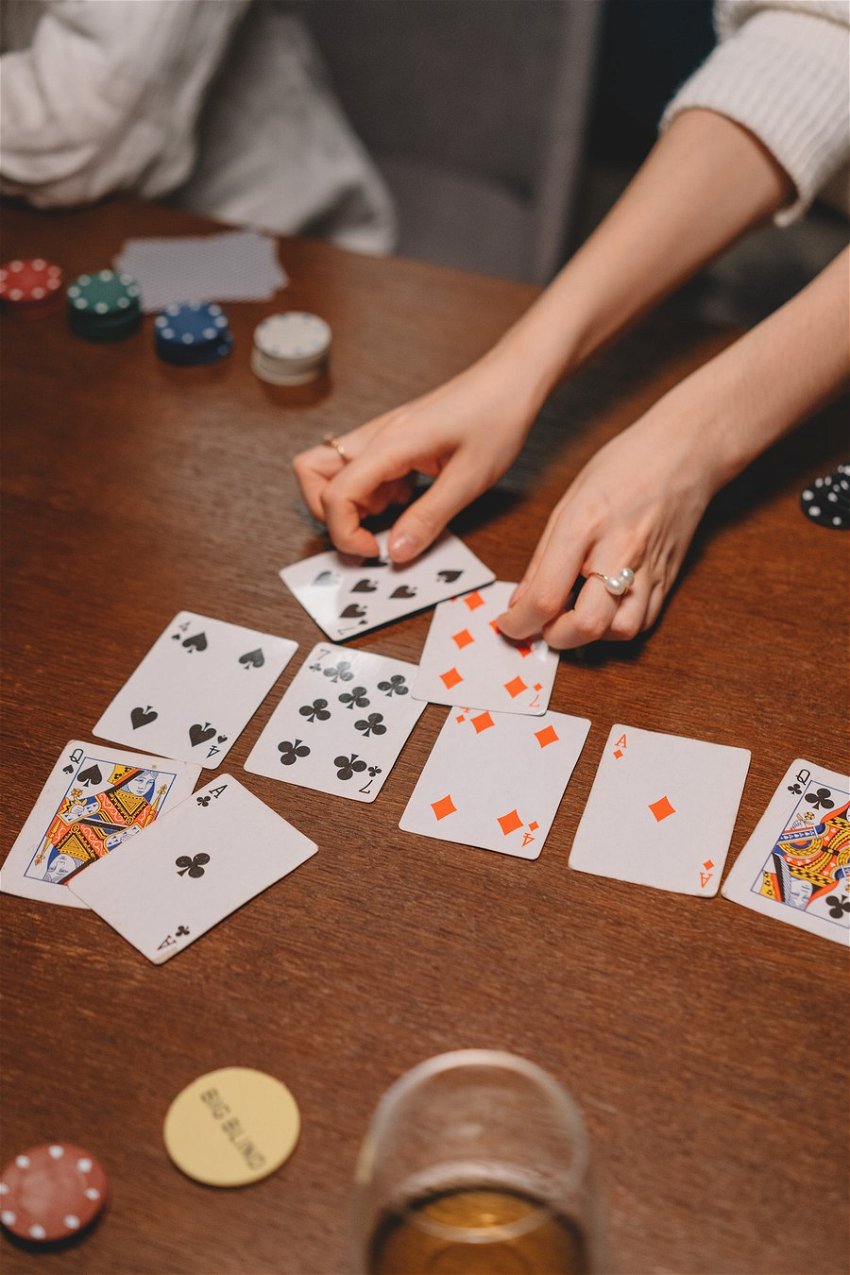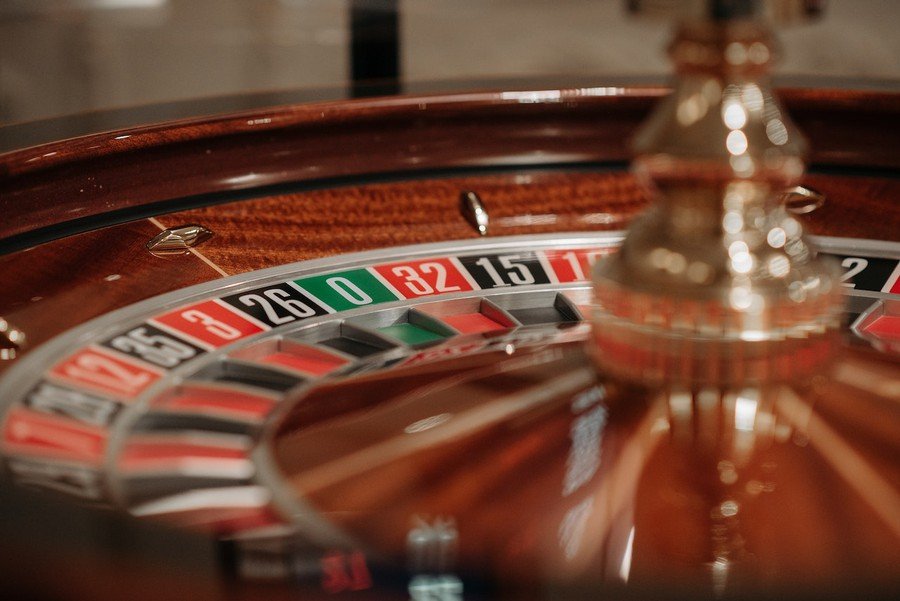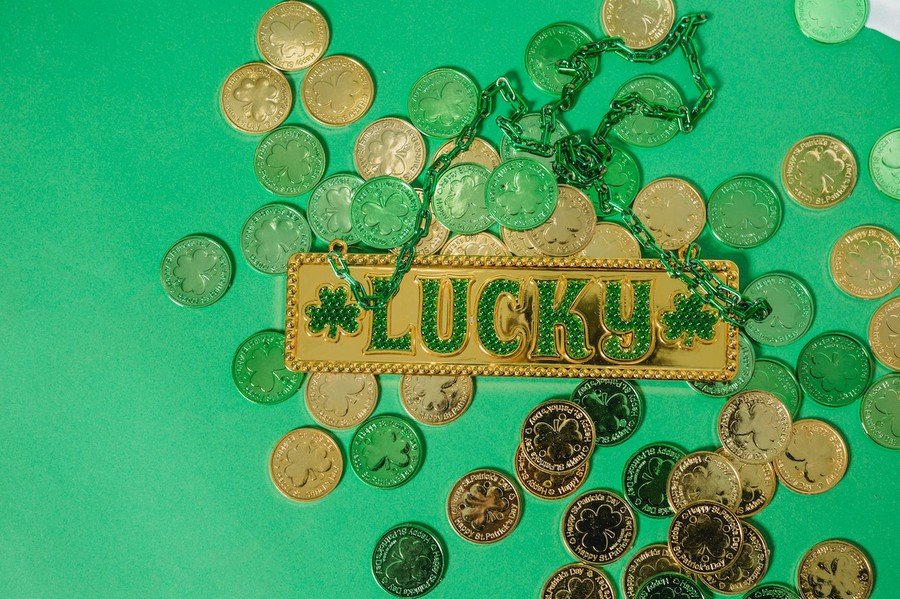In Texas Hold 'Em Poker, being dealt a poor hand and subsequently folding may seem like a frequent occurrence. After experiencing losses, players may question whether they should be more risk-averse and fold more often. However, by folding excessively and waiting solely for a high-value starting hand, a player's actions become predictable, and the odds of receiving such a hand are not necessarily in their favor. Consequently, other players may start to notice and suspect that the individual only places bets sporadically when they possess a good hand.
When should I fold?
Let's be honest, the most pressing question you're likely asking yourself is, "When should I fold?" To aid in this decision-making process, David Sklansky has developed a chart that outlines the various starting hands in poker, classifying them as either more or less favorable to play.

In a typical game of poker, it is desirable to have cards that can potentially create a sequence or flush, preferably a high-ranking one, or repeating cards that can lead to a full-house, double or triple. Therefore, a starting hand with matching cards such as a pair of twos, threes, or fours, and ideally a pair of aces, is highly beneficial. Additionally, cards that are in proximity to each other, such as an 8-9 or 10-J or J-Q or K-A, can increase the likelihood of making a sequence, making them another valuable starting hand.
Worst hands in Texas Hold 'Em Poker
It's evident that folding is advisable when dealt with low-ranking cards that are neither matching nor in proximity to each other, such as a hand like 7-2. To help you avoid such unfavorable starting hands, here are the top 10 worst starting hands you should steer clear of in Texas Hold 'Em Poker.
- 7-2 - This is widely considered to be the worst starting hand in Texas Hold 'Em. There are no straight or flush possibilities, and the cards are of very low rank.
- 8-2 - Another very weak starting hand. It has no straight or flush possibilities, and the cards are again of very low rank.
- 9-2 - Similar to the previous two hands, this hand has no straight or flush possibilities and low-ranked cards.
- 8-3 - Again, this hand has no straight or flush possibilities and low-ranked cards.
- 7-3 - Just like the previous hand, this hand has no straight or flush possibilities and low-ranked cards.
- 6-2 - This hand has no straight or flush possibilities, and the cards are of very low rank.
- 5-2 - Like the previous hand, this hand has no straight or flush possibilities, and the cards are of very low rank.
- 4-2 - This hand has no straight or flush possibilities, and the cards are of very low rank.
- 3-2 - Once again, this hand has no straight or flush possibilities, and the cards are of very low rank.
- 5-3 - This hand has no straight or flush possibilities, and the cards are of very low rank.
Ad
Ad
Feeling more confident now? If you feel like trying poker now go with alle online casino België. But wait! I would like to point out another topic: a good starting hand may cause too much confidence and make you lose the game.
The problem with confidence
Some players contend that the worst hand in poker is a very good hand, albeit not as strong as those of your opponents, in reality, a poor hand can be quickly discarded, while a strong hand may entice players to invest a significant amount of money into the game. As such, the "yellow zone" depicted in the graphic above may constitute the worst starting hands, as they may not be strong enough to win the pot, yet still tempting enough to continue playing and investing money.
Although hands like AA are extremely powerful, they can also be quite perilous, as playing them correctly may result in substantial monetary losses. In fact, if you're not losing significant money on such hands, it's likely that you're not playing them to their full potential. Despite the low odds of winning against a table full of players, these hands are still the best that one can hope to receive, so it's advisable to keep them and make the most of them during gameplay.
Conversely, an unmistakably weak hand is advantageous in that you know precisely what to do with it - fold. This decision ensures that you won't incur any significant losses on the hand, apart from the blinds that you may have already posted if it was your turn. If you do happen to lose more than the blinds on such hands, it's a reflection of your decision-making abilities.
Ad







— Комментарии
0Прокомментируйте первым